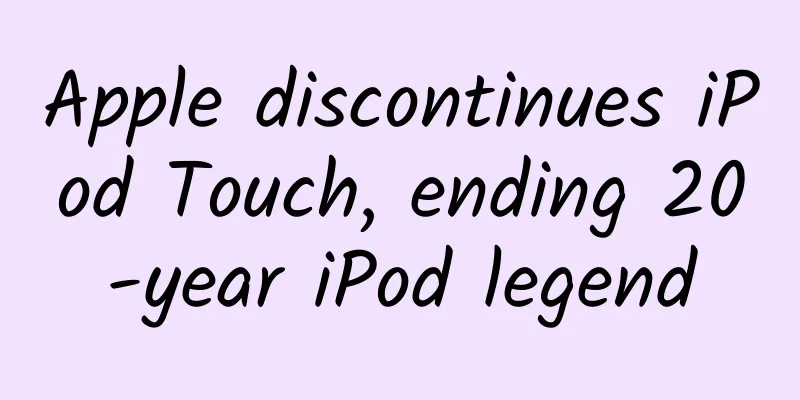Apple discontinues iPod Touch, ending 20-year iPod legend

|
As Apple prepares to enter the 15th anniversary of the iPhone, the company's less popular sibling, the iPod Touch, is also making its final bow. Apple Inc. announced Tuesday that it will discontinue the iPod touch, the last model of the portable music player it still sells, a move that marks the end not only of one of the tech industry’s most influential devices but also of the iPod line that helped reshape entertainment and ushered in the digital music era two decades ago. “Music has always been a part of who we are at Apple and bringing it to hundreds of millions of people is just as important as the iPod, which not only impacted the music industry — it redefined how music is discovered, listened to and shared,” Greg Joswiak, Apple’s senior vice president of worldwide marketing, said in a statement. On October 23, 2001, Apple released the first iPod, boasting that it could fit "up to 1,000 CD-quality songs into an ultra-portable 6.5-ounce design that fits in your pocket." In addition to playing music, the $199 iPod touch can also send iMessages and make FaceTime calls, but not make phone calls. In 2003, the iPod music player and its iTunes music software helped people start buying digital music, itself a controversial idea as the entertainment industry struggled with music sharing through apps like Napster. In 2005, Apple expanded into digital movies and TV. The first-generation iPod was released a little more than a month after the Sept. 11 terrorist attacks, a move considered a major risk for Apple, which was struggling to get back on financial footing after nearly going bankrupt a few years earlier. Back then, the company was Apple Computer Inc., and it placed some of its biggest bets on entirely new product categories, like the all-in-one iMac, which debuted in 1998, and the consumer-focused iBook laptop computer, which launched a year later. Soon after, Apple introduced a host of other i products, including iLife software for organizing photos and movies and iWork software to compete with Microsoft Office. But arguably Apple's greatest success has been the iPod and its iTunes music software. Over the years, the iPod line expanded to include the iPod Mini, iPod Nano and iPod Shuffle, in addition to the classic iPod. Apple stopped selling those iPods between 2014 and 2017. The iPod has been eclipsed by the iPhone, the smartphone originally introduced by co-founder Steve Jobs in June 2007 as a combination of "the iPod, the cell phone and the Internet communicator". The first-generation iPod touch, which was more similar to the iPhone and was called "the iPhone without the phone," was launched in 2007 and hasn't been updated since May 2019. Apple said it will continue to sell the remaining iPod Touch devices through its website starting at $199 each until stock runs out. The company offers 32GB, 128GB and 256GB models and six colors including silver, pink, blue and gold. "The spirit of the iPod lives on through its many other products that have integrated music playback," Greg Joswiak, Apple's senior vice president of worldwide marketing, said in a statement. |
<<: iOS uses Metrickit to collect crash logs
>>: Common adaptation solutions for mobile terminals
Recommend
The product is too expensive to sell. Have you used these 6 methods?
I have read an article by Li Jiaoshou before, &qu...
How can marketers help startup brands write a complete set of brand copy?
In August 2019, I took on a project in which I tr...
Why do pineapples need to be soaked in salt water? Is it necessary to soak in salt water? Detailed explanation of the correct way to soak pineapple!
Pineapple is a common warm fruit in our life. It ...
Writing information flow copy like this will increase the click rate by 12.8 times
When you are selling a summer camp course for an ...
Eating black sesame paste = black sesame? If baldness strikes suddenly, how should we deal with it?
Young people nowadays generally have "hair a...
Product analysis of Maoer FM and Himalaya FM!
Pan-entertainment has always been in the limeligh...
How much does it cost per month to rent a computer room with 1TB bandwidth server?
How much does it cost to rent a computer room wit...
The world is watching! What exactly is the "Starship" that Musk is going to launch today?
After four years of various tests, ignitions, and...
There are more and more "plant meats" and the taste is so real that it is hard to tell the difference. Will eating too much of it affect your health?
Audit expert: Wang Guoyi Postdoctoral fellow in N...
How to deeply interpret those operational professional terms?
"After launching this activity, the daily UV...
How to plan Weibo operations from scratch?
Introduction: To be good at Weibo, fans and readi...
2022 First-line Battle World Gold Diamond Indicator Captures Short-term Daily Limit Steady Profit-making Strategy
2022 First-line Battle World Gold Diamond Indicat...
How to improve users' sense of security and win their hearts?
Internet products (especially new apps) are troub...
Guangdong, Dam Machine! The "Best Dam Machine in Guangdong"
Guangdong Province has many rivers, mainly the Pe...
Moon not dead yet? Lunar ridges found to respond to collision 4.3 billion years ago
[Mobile software: Bo Ke Yuan] Scientists have dis...









